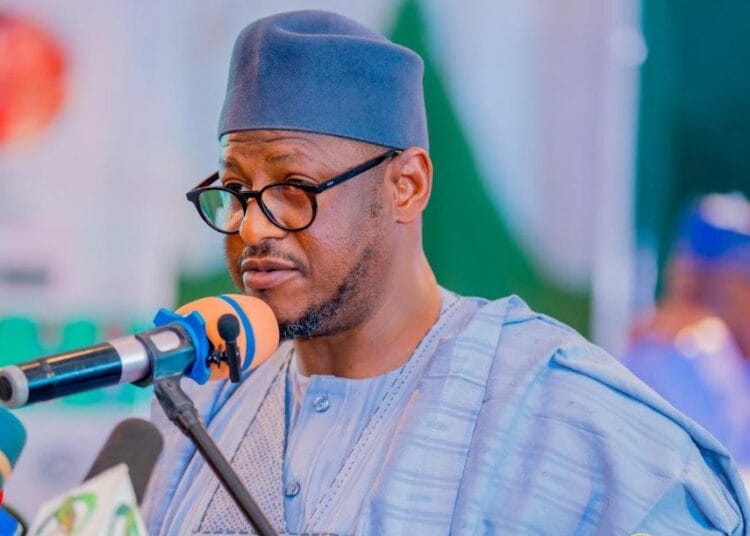In the past decade, Nigeria’s democratic landscape has undergone significant transformations, marked by both achievements and challenges in governance and continuity. As Africa’s most populous nation, Nigeria’s journey towards democratic consolidation provides valuable insights into the dynamics of political stability, institutional development, and governance reforms.
**Electoral Processes and Political Stability**
Over the last ten years, Nigeria has seen a series of general elections that have been crucial in shaping its democratic trajectory. The 2015 presidential election marked a historic moment with the first peaceful transfer of power between civilian administrations, as incumbent President Goodluck Jonathan conceded defeat to opposition candidate Muhammadu Buhari. This set a precedent for democratic norms and strengthened the electoral process, despite persistent issues such as electoral violence, voter intimidation, and allegations of fraud.
Subsequent elections, including the 2019 and 2023 polls, have continued to test the resilience of Nigeria’s democracy. The Independent National Electoral Commission (INEC) has made strides in improving electoral transparency and credibility through technological innovations such as biometric voter registration and electronic transmission of results. However, the challenge of ensuring free, fair, and credible elections remains a work in progress, with calls for further reforms to address systemic flaws.
**Institutional Reforms and Governance**
Institutional reforms have been pivotal in enhancing governance and accountability in Nigeria. Anti-corruption efforts, spearheaded by agencies like the Economic and Financial Crimes Commission (EFCC) and the Independent Corrupt Practices Commission (ICPC), have seen varying degrees of success. High-profile prosecutions and asset recoveries have been notable, though critics argue that the fight against corruption needs to be more consistent and devoid of political interference.
Public sector reforms aimed at improving service delivery and efficiency have also been implemented, albeit with mixed results. Initiatives such as the Treasury Single Account (TSA) and the Integrated Payroll and Personnel Information System (IPPIS) have been instrumental in curbing financial leakages and promoting fiscal discipline. Nevertheless, issues such as bureaucratic inefficiencies, inadequate infrastructure, and policy inconsistencies continue to hamper effective governance.
**Security Challenges and National Unity**
Nigeria’s security landscape has been a significant concern, impacting governance and national unity. The rise of insurgent groups like Boko Haram in the Northeast, escalating banditry in the Northwest, and separatist agitations in the Southeast have posed formidable challenges to the country’s stability. Successive administrations have had to balance military interventions with socio-economic strategies to address the root causes of these conflicts.
Efforts to decentralize security through state policing and community-based initiatives have gained traction, reflecting the need for a more localized approach to security management. National unity remains a priority, with calls for inclusive governance and equitable resource distribution to mitigate ethnic and regional tensions.
**Economic Reforms and Development**
Economic governance has seen significant policy shifts aimed at diversifying the economy and reducing dependency on oil revenues. Initiatives such as the Economic Recovery and Growth Plan (ERGP) and the National Economic Sustainability Plan (NESP) have focused on stimulating growth, creating jobs, and attracting investments in sectors like agriculture, manufacturing, and technology.
However, economic challenges persist, including high unemployment rates, inflation, and a large informal sector. The COVID-19 pandemic further exacerbated these issues, necessitating adaptive measures to cushion the economic impact and promote resilience.
**Civic Engagement and Democratic Consolidation**
Civic engagement and participation have been crucial in shaping Nigeria’s democratic journey. Civil society organizations, media, and grassroots movements have played an active role in advocating for reforms, transparency, and accountability. The rise of digital activism and social media has amplified citizens’ voices, fostering a more participatory democratic culture.
Moving forward, the focus on governance and continuity in Nigeria’s democracy will hinge on sustained efforts to strengthen institutions, uphold the rule of law, and foster inclusive development. The lessons learned over the past decade underscore the importance of adaptive governance, resilient institutions, and an engaged citizenry in navigating the complexities of Nigeria’s democratic landscape.
Discover more from DnewsInfo
Subscribe to get the latest posts sent to your email.



